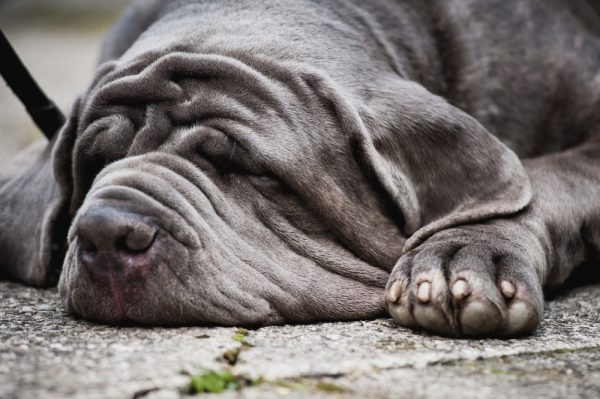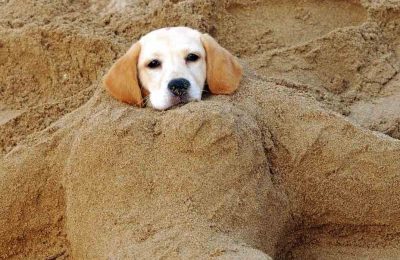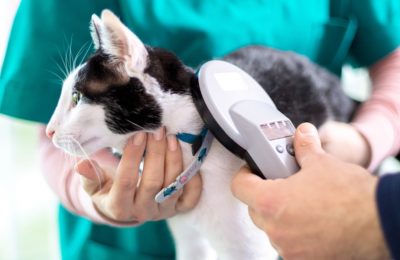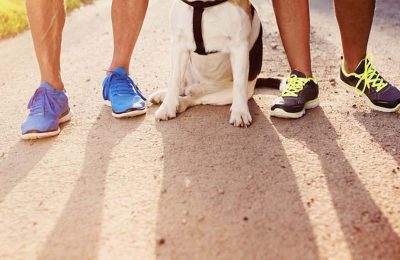very dog owner recognises that their pet prefers to sleep in short periods of time, never really switching off for sustained periods of the day like humans do. Instead, research into the resting and waking behaviours of dogs from the Journal of Small Animal Practice suggests canines nap for around half of the day, but never particularly deeply – which means it’s important your dog gets enough opportunities for nap time. A dogs’ shorter sleep stints mean only 10% of their snoozing is REM sleep, the deep restorative sleep when the body repairs itself. The result is that they need more total hours of sleep in order ensure they get enough of the restorative kind that they need for their active, healthy lifestyle.
A typical medium-sized dog breed, such as a Labrador, will sleep for about 12 to 14 hours a day for an hour or so at a time. But younger puppies, prone to expending a lot of energy whilst exploring and learning, may need as much as 18 to 20 hours. Older dogs also need more rest, as do certain specialist breeds.
According to the research study, both small and large breeds can be long sleepers, but it tends to be the big fellas – like Newfoundlands, Mastiffs, St. Bernards, and Great Pyrenees that earn the nickname ‘mat dogs’ for their seemingly endless napping. Smaller, more active dogs, such as spaniels and pointers, might take slightly longer naps after an active period or a long walk. These smaller breeds have fewer naps overall, but their naps last a bit longer.
Studies show dogs often spend 50% of their day sleeping, 30% hanging out, and only 20% of the day being truly active.
The Journal of Small Animal Practice

'Let sleeping dogs lie': Mastiffs are known for their long napping
The Journal of Small Animal Practice study shows dogs often spend 50% of their day sleeping, 30% hanging out, and only 20% of the day being truly active. They are flexible sleepers, taking their sleep when they can get it, unlike humans who need a more or less regular schedule. Dogs can easily wake up when there is sudden action (an Amazon delivery , for example) – and we’ve all seen the phenomenon in action when our previously snoring dog roars awake in a split second to take part in whatever fun is about to kick off. However, like humans, they sleep less when they have more to do, so you’ll see a farm or police dog taking fewer naps than those dogs that are more housebound.
While there can be a lot of variability in dogs’ sleeping habits, the one thing veterinary professionals recommend to keep an eye out for is a dramatic change in habits. If your usually active dog is suddenly sleeping all the time, or your normally big sleeper is awake and listless, it’s never a bad idea to get in touch with your vet to check for underlying health issues. The answer to doggie sleep problems can often be something as simple as tweaking their diet.








